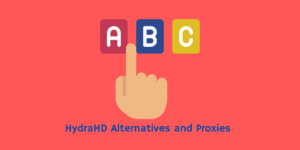Intrusive ads and annoying pop-ups have become a permanent element of the online experience, and it is here to stay. Constant advertising like this can certainly ruin your online experience. It can also slow down download speeds and expose your device to malware.
Ad blocking is the most popular solution for this problem. There are applications called ad blockers that can remove or alter ad content from a web page. Ad blockers are usually in the form of plugins or browser extensions; they are now widely used for a smooth browsing experience.
Contents
What Does an Ad Blocker Do?
Simply put, an ad blocker blocks annoying ads from your device while you are browsing the internet. Ad blocking removes different types of ad content- intrusive pop-ups, banners, and video content from web pages when you visit them.
Ad blockers are typically used in the form of software or browser extensions that check the domain names of the elements on a web page while the site is loading. These domain names are checked against the software’s massive blocklist.
Any element flagged as advertising material is stopped from loading and displayed on the user end.
Ad Blocking enhances the internet browsing experience and protects privacy as ad blockers prevent tracking scripts from following your online activities. In this way, they act as digital shields and have become a staple for modern internet users.
Why Do People Use Ad Blocker?
Privacy Concerns
Ads track user behavior online to build a detailed profile for targeted advertisement. Websites themselves often embed third-party cookies and trackers that collect data. This leads to a feeling of being constantly monitored on the internet.
Such privacy and data security concerns lead people to use ad blockers.
Intrusive Ads
Disruptive ad formats like pop-ups, flashing banners, and autoplay videos can be annoying, interrupt browsing, and can slow down internet speeds. Ad blocking eliminates these distracting elements, creating a more peaceful browsing experience.
Security and Performance
Ads can increase website loading times, especially if the connection is slow. Blocking them, therefore, helps pages load quickly and improves the overall browsing experience.
Further, some ads can harbor malware or spyware, which puts the users’ data at risk. Ad blockers act as an extra layer of protection by preventing such threats.
Cost Consideration
Ad blocking helps users on limited data plans to reduce their data consumption. This helps them save costs on internet bills and frequent top-ups.
Accessibility
Users with disabilities and certain cognitive impairments may find frequent and intrusive ads overwhelming or distracting. Ad blockers are crucial to improve accessibility for those users.
Pros of Ad Blocking
Device Safety
Ads on the internet can often infect your device with malware if you click on them. Ad blocking software prevents this threat by not allowing the ads to be displayed on your device.
Improves Browsing
Ads can make the overall interface of a website look cluttered and overwhelming. They also consume more bandwidth and increase web page loading times. Ad blockers, therefore, are essential to improve your browsing experience by removing these distracting elements.
Privacy
Advertisers use trackers to monitor your browsing activity and build a profile for targeted advertisement. Such tracking scripts violate your privacy and make you feel like you are constantly being monitored. Ad blocking protects you from constantly seeing ads for recently searched items.
Cons of Ad Blocking
Financial Concerns
Ads are one of the ways users “pay” for the content they consume. They are the only source of income for many websites and online services. Disabling ads, therefore, may financially hit many independent publishers and service providers.
Full Protection Not Guaranteed
Website developers and advertisers constantly search for and discover new methods of bypassing ad-blocking software. Having an ad blocker is no guarantee of complete protection from malicious ads.
Ethical Advertising
Some advertisers do use ethical techniques and make ads that are useful. They don’t impact your browsing experience much and can actually help you find the best deals. Using ad blockers can cause you to miss such deals.
How Does Ad Blocking Affect Websites?
Ad blocking may affect the tools used by marketers to measure and improve online experiences.
Analytics
Many ad blockers block ads and analytics scripts, making it difficult for marketers to collect data about user behavior. The website would still be functional for the end user, but the developers may lose out on data related to page views and traffic sources.
Subpar User Experience
Some ad blockers block the ads on a web page but don’t replace them with anything. As a result, the website may look like a landscape of missing content and broken links to the visitor. This impacts the user experience and may cause them to miss important calls-to-actions.
Financial Aspect
Websites and content creators often rely on ads as their primary source of income. Ad blocking can cause a financial crunch and can be particularly severe for smaller operations that heavily depend on ads to sustain their operations.
Accessibility
Websites and content creators have started seeking alternate revenue models, such as subscriptions and sponsorships, as ad blocking has become more widespread. These changes have the potential to change the user experience and affect the accessibility of content.
If you have decided to install an ad blocker, then here’s a list of the most effective ad blockers. This list contains options for all devices, including Mac OS, Android, and Windows-operated systems.




